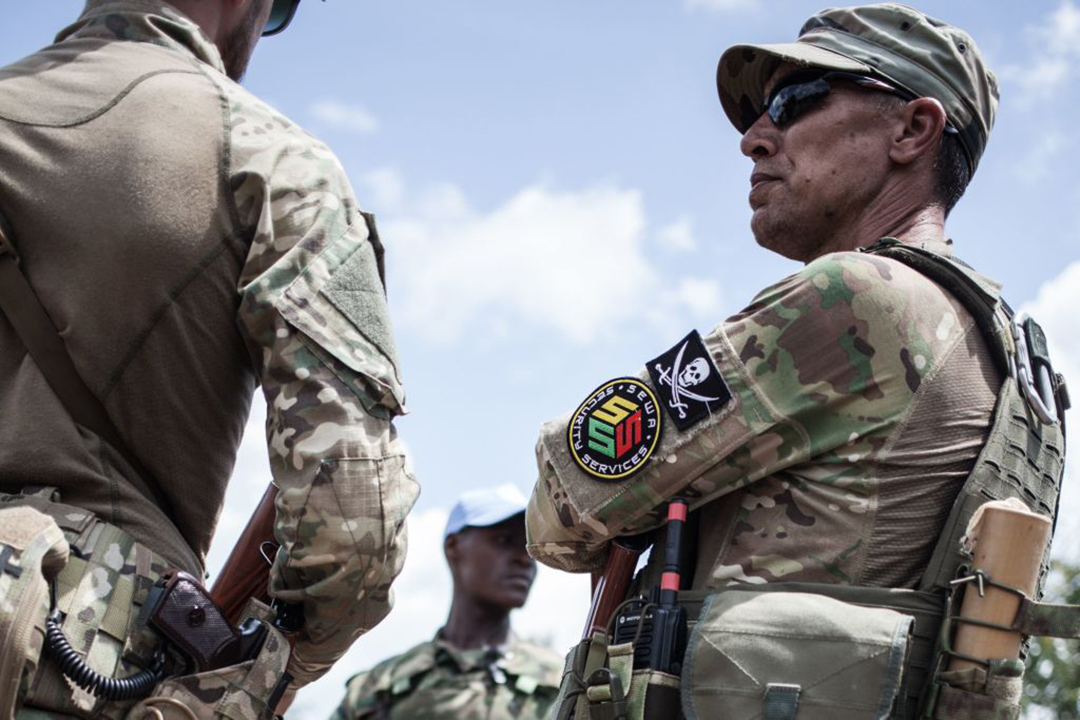Russia Stonewalls U.N. Arms Embargo Investigation
ADF STAFF
Russia recently admitted it has been blocking United Nations investigations into violations of arms embargoes in four African conflict zones — some involving Russian mercenaries.
U.N. diplomats on September 29 said Russia is delaying the appointment of independent experts to monitor violations of U.N. sanctions in the Central African Republic (CAR), the Democratic Republic of the Congo (DRC), Mali and South Sudan.
“It looks like Moscow wants to paralyze sanctions and panels of experts to divert attention from what Wagner is up to in Africa,” International Crisis Group’s U.N. Director Richard Gowan told Foreign Policy magazine. “So in some cases, it is simply a way of covering up some nefarious business.”
Despite its own conflict of interest with its deep ties to the notorious paramilitary Wagner Group that operates in Africa, Russia is using its veto power in the 15-member U.N. Security Council to demand Russian appointees.
The work of the four African panels remains on hold — as some have for months.
The assignment of experts to the South Sudan committee has been delayed since July 1. The DRC’s committee mandate expired August 1, CAR’s on August 31, and Mali’s on September 30.
Russian Deputy U.N. Ambassador Dmitry Polyanskiy told Reuters his country questions the “impartiality, neutrality and independence” of the experts.
Many diplomats and observers believe Russia’s objective is to diminish scrutiny of its expanding influence campaign in Africa.
Recent U.N. investigations into the activities of Russian military instructors and mercenaries in CAR and Libya have resulted in accusations of war crimes.
In a June report, the U.N. panel of experts monitoring CAR sanctions condemned “grave human rights abuses.” The panel accused Russian military instructors who were leading CAR forces of targeting civilians with “excessive use of force, indiscriminate killings, the occupation of schools and looting on a large scale, including of humanitarian organizations.”
Russia denied the allegations despite the panel presenting photographic evidence and eyewitness testimony.
Russia did acknowledge the deployment of about 500 instructors, but the panel cited estimates of up to 2,100. Some believe the term “instructor” is a thinly veiled disguise for mercenary.
“We remain deeply troubled by allegations that such atrocities are being committed not only by armed groups but by members of the national armed forces and indeed by private military contractors,” British official Alice Jacobs told the Security Council in late June.
Panel experts monitoring sanctions in Libya said in September 2020 that Russia violated a U.N. arms embargo and cited 11 companies, including the Wagner Group. The panel said in May 2021 that the group sent 800 to 1,200 mercenaries to support Field Marshal Khalifa Haftar’s military efforts against the U.N.-backed government in Tripoli.
The Libya panel of experts’ mandate expires August 15, 2022.
Now Russia has plans to enter Mali while blocking the U.N. from overseeing sanctions violations.
The Russian foreign minister on September 25 confirmed that Russian private contractors were invited to help with security by Mali’s transitional government, which took power in a military coup in August 2020.
However, four Russian military helicopters along with arms and ammunition arrived in Bamako on September 29, according to Malian Defense Minister Sadio Camara.
With about 15,000 peacekeepers in Mali, the U.N. has expressed concern over the involvement of mercenaries. France, which has led counterterrorism efforts in the Sahel region since 2013, is planning to draw down its troops in Mali.
Meanwhile, diplomats and experts are sounding multiple alarms, charging Russia with destabilizing already-volatile regions of Africa while undermining any chance at oversight.
“The United Kingdom remains concerned by credible reports of human rights abuses committed by the Russian mercenary group Wagner in the Central African Republic,” Ambassador James Kariuki told the U.N. Security Council on October 18. “Those abuses are not only wrong, they are a driver of conflict and undermine the vital work of international peacekeepers and the authorities of the Central African Republic.
“Wagner does not offer long-term security answers in Africa.”


Comments are closed.